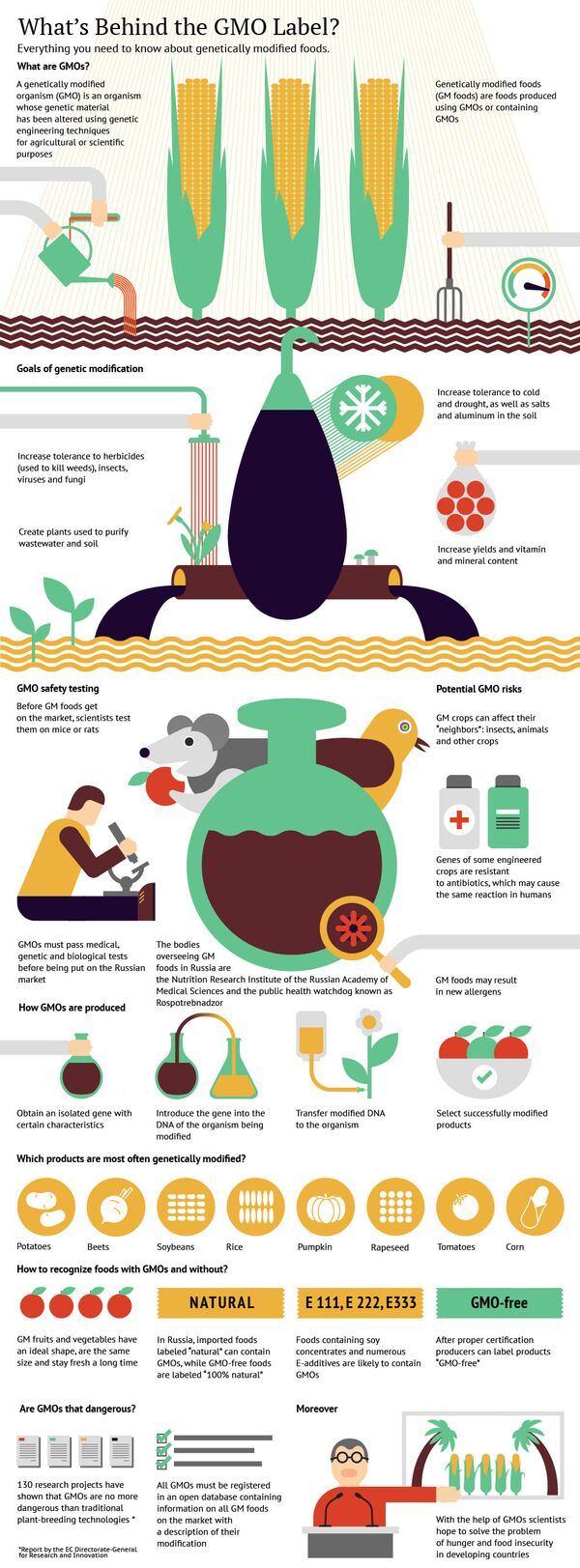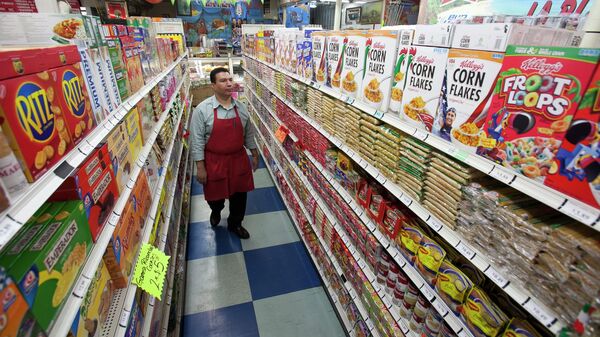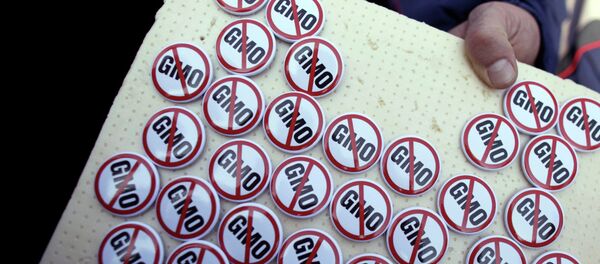“76 percent of adults have little to no awareness of what GMOs [genetically modified organisms] are, so if they see a label pointing to GMOs in the product, they’re likely going to continue using it since the label might be meaningless at first,” Darren Seifer said commenting on the research.
The GMO labelling debate is high on the agenda in the United States, as the January 7, 2015 date for the court hearing over Vermont’s passing of a law making GMO labelling mandatory, looms closer.
“I feel that should Vermont’s law stand and is allowed to go into effect in 2016, it could have implications around the nation,” NPD’s Darren Seifer told Sputnik. “GMO labeling might be seen on packages in more states than just Vermont since it would not be efficient for manufacturers to print one set of labels for Vermont and another set of labels for the remaining 49 states.”
Though Seifer remains skeptical about the immediate reaction of consumers who know little about genetically modified foods, he expects that in the long run, more consumers will discover why they are causing some people to hesitate before using a product that they know contains GMOs.
He added that in 2011, 15 percent of adults were very or extremely concerned that GMOs posed a health hazard and that number grew to 20 percent in 2013.
Maine, Connecticut and Vermont have all passed stand-alone GMO labeling laws. But these laws can only be enacted if a minimum of five neighboring states also pass laws to make GMO labeling mandatory.
Across the world, over 60 countries require manufacturers to label foods containing GMO ingredients.







